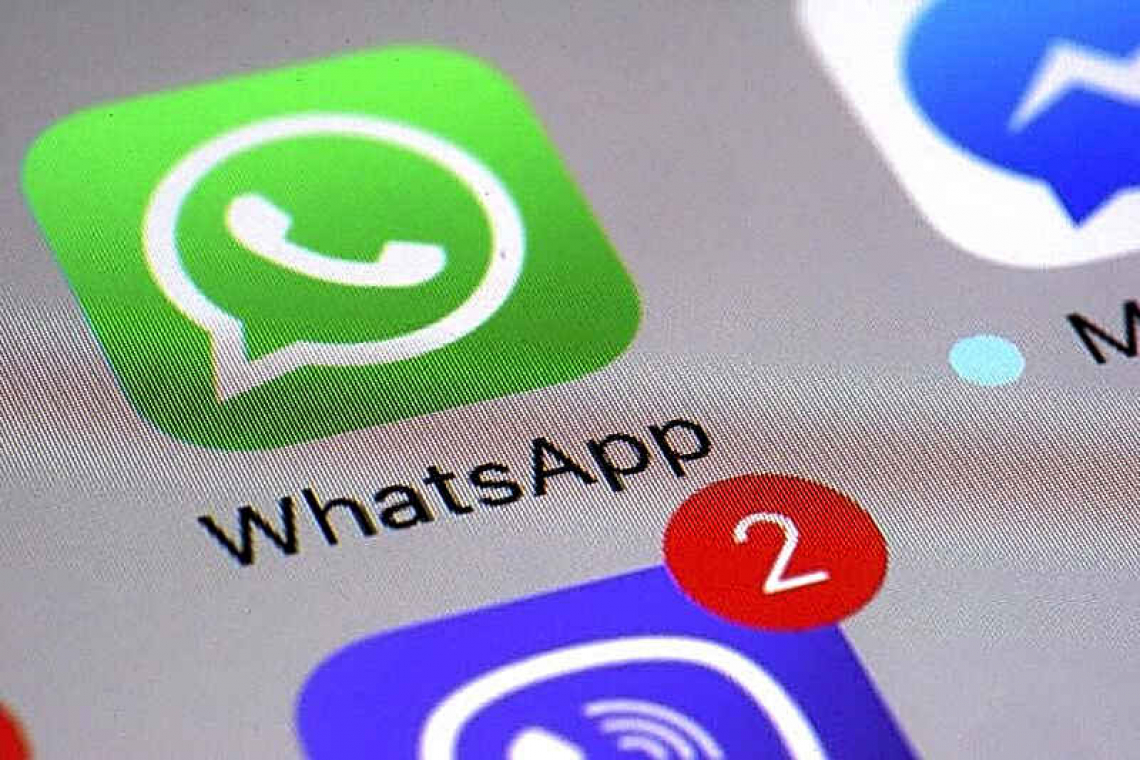The WhatsApp application icon on a cell phone.
HAMILTON, Bermuda--An elderly man was tricked out of BDS 65,000 (US $32,500) worth of cash and gift cards in a scheme that lasted more than a year, police said.
Residents were warned about a scam where people are told they are prize draw winners but must keep the windfall secret.
A Bermuda Police Service (BPS) spokesman said: “The BPS is once again advising members of the public that if you receive a message from unknown persons suggesting that you have won a large sum of money, it is more than likely a fraud and should be ignored.
“A variation of a classic scam currently circulating claims US $800,000 in prize money from ‘Samsung’ has been won.
“More recently, in an effort to further validate the scam, the fraudsters have managed to convince a Bermudian male to post a misleading video on social media stating that the prize draw is legitimate.
“In addition, the fraudsters are informing recipients that they must keep their ‘winnings’ secret.”
He added: “The BPS is aware of one elderly local man who has been involved in the fraudulent scheme for over 12 months and has so far sent $65,000 in cash and iTunes cards, before reporting the matter to police.
“It is suspected that overseas fraudsters have swindled more local residents.”
The police spokesman said that people are usually contacted through WhatsApp and informed that they are the winner of a prize draw.
He added: “Of note, more often than not, the WhatsApp contact number has a +234 prefix telephone code, which means that the senders originate in Nigeria.
“The recipients are then shown a briefcase containing cash via video and are assured that a representative is currently on island to deliver the cash to the recipients.
“However, prior to delivering the cash, the recipients are directed to purchase numerous Apple iTunes cards locally in order to satisfy delivery fees.
“Once purchased, the recipients are instructed to reveal the unique number located at the back of every iTunes card and send a photograph of each number via WhatsApp back to the senders.
“The fraudsters – senders – then quickly redeem the value of the cards before the recipient realises that they are being scammed.”
The BPS advised to report any suspected scam to the police non-emergency number 211 or by e-mail to This email address is being protected from spambots. You need JavaScript enabled to view it. and provide as much information as possible. If any credit card, debit card or other account details have been provided, persons are advised to contact their local bank as soon as possible.
A BPS spokesman reminded residents that no legitimate organisation demands payment of any fees via the purchase of iTunes cards.
The police spokesman added: “Block all WhatsApp contact from calls originating out of Nigeria, or any other unknown contact.” A WhatsApp guide on how to block calls and messages can be found on the messaging service’s website,
www.whatsapp.com.
The Apple website has information about gift card scams, including: “If you are not purchasing an item from Apple – such as from the Apple Store, iTunes Store, App Store, Apple Books, or for an Apple Music subscription or iCloud storage – do not make a payment with an Apple Gift Card, App Store & iTunes Gift Card, or Apple Store Gift Card. There’s no other instance in which you’ll be asked to make a payment with either of these gift cards.” It adds, “Do not provide the numbers on the back of the gift card to anyone that you don’t know.”
Detective Chief Inspector Sherwin Joseph of the BPS Special Investigations Unit said last December that the cost of computer crime in 2021 totalled more than BDS 3.8 million (US $1.9 million).
Email hustles accounted for 56% of cases, social-media scams made up 22% and a string of other tactics were employed for the rest.
A man targeted by fraudsters earlier warned other Internet users about a message that claimed to be from electronics company Samsung notifying him about an $800,000 prize.
He was told he must provide his bank account number and SWIFT code to be eligible for the award – and complied.
The man said he later received WhatsApp messages appearing to show a photograph and video of people celebrating after winning the same amount in similar circumstances.
He continued communicating via WhatsApp until he finally became convinced it was a scam, when he was asked to pay $500 as a “VAT fee” for his bank. ~ The Royal Gazette ~







